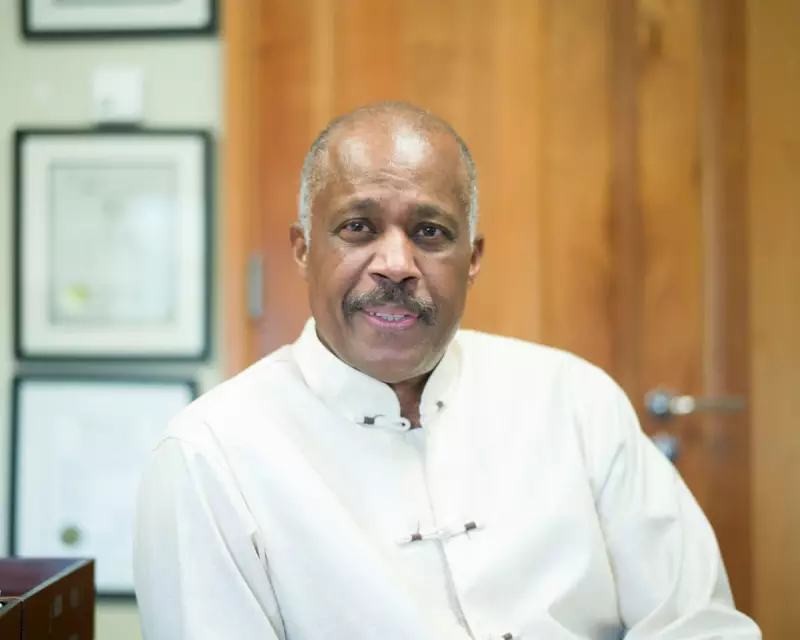
Caribbean leaders have launched a significant diplomatic initiative in the United Kingdom, clarifying that their pursuit of slavery reparations aims for collaborative solutions rather than financial demands that could strain the British economy.
Clarifying Misconceptions About Reparations
During their first official visit to the UK, representatives from the Caricom Reparations Commission (CRC) addressed what they described as misleading media reports about their objectives. Professor Sir Hilary Beckles, chair of the CRC, explicitly stated that their goal is not to "break the British Treasury" through trillion-pound demands, but rather to establish a mutually beneficial restorative justice programme.
Speaking at a press conference in London, Sir Hilary emphasised the importance of raising awareness about the enduring harm caused by centuries of enslavement and colonial exploitation. He highlighted how Caribbean nations were left "with no resources, bankrupt treasuries and no economic strategies" following independence.
The Legacy of Wealth Extraction
The academic leader provided a stark assessment of historical economic relationships between Britain and the Caribbean. "All dimensions of our civilisation have been subject to severe extraction of wealth that has helped to build out the institutions of this country and to build up the nation that is Great Britain today," Sir Hilary stated.
He was quick to clarify that the Caribbean approach differs fundamentally from this historical pattern. "We are not seeking to offer the same extractive agenda," he assured, describing the reparations movement as focused on collaboration between former colonies and colonisers.
The CRC delegation, consisting of six members, has been meeting with UK parliamentarians, Caribbean diplomats, academics and civil society groups during their visit. Their mission involves raising consciousness and facilitating future dialogue between Caribbean and British governments.
Connecting Historical Injustice to Modern Challenges
David Comissiong, ambassador to Caricom and vice-chair of the Barbados National Taskforce, drew direct connections between historical exploitation and contemporary Caribbean struggles. He explained that the "overburdened debt situation" facing many Caribbean nations results from centuries of European nations siphoning off regional resources.
This historical context, he argued, directly impacts the region's ability to confront modern challenges like the climate crisis. "If we don't, with proper goodwill, address these lingering situations of injustice and fragility, then what happens? The climate crisis only gets worse," Comissiong warned.
He framed the reparations movement as having universal benefits. "Yes, we are looking for justice for ourselves. But by seeking justice for ourselves, we are also seeking universal justice," he told reporters, suggesting that addressing these historical wrongs could help prevent broader global instability.
Global Movement Gains Momentum
The Caribbean initiative forms part of a growing international push for slavery reparations. At the ongoing UN Cop30 climate conference in Brazil, hundreds of human rights and environmental groups have urged delegates to include reparations on the agenda.
These groups argue in an open letter that global warming began with industrial revolutions made possible by resources provided through "imperialism, colonialism and enslavement." They maintain that this historical exploitation skewed the global economy in favour of the global north.
The issue also featured prominently during last year's Commonwealth leaders meeting. While Britain's Prime Minister Keir Starmer described the slave trade as abhorrent, he suggested countries should focus on "looking forward" and addressing current challenges like climate change.
However, other Commonwealth leaders issued a statement declaring that "the time has come for a meaningful, truthful and respectful conversation towards forging a common future based on equity."
Between the 15th and 19th centuries, historical records indicate that more than 12.5 million Africans were kidnapped, forcibly transported to the Americas and sold into slavery. Caribbean governments seek recognition of this legacy through formal apologies and financial reparations including debt cancellations.
Sir Hilary Beckles summarised the mission as cleaning up the "mess" left by colonialism "so that we can all go forward together," emphasising that the ultimate goal involves identifying "mutual strategies for mutual benefits" between the UK and its former colonies.





